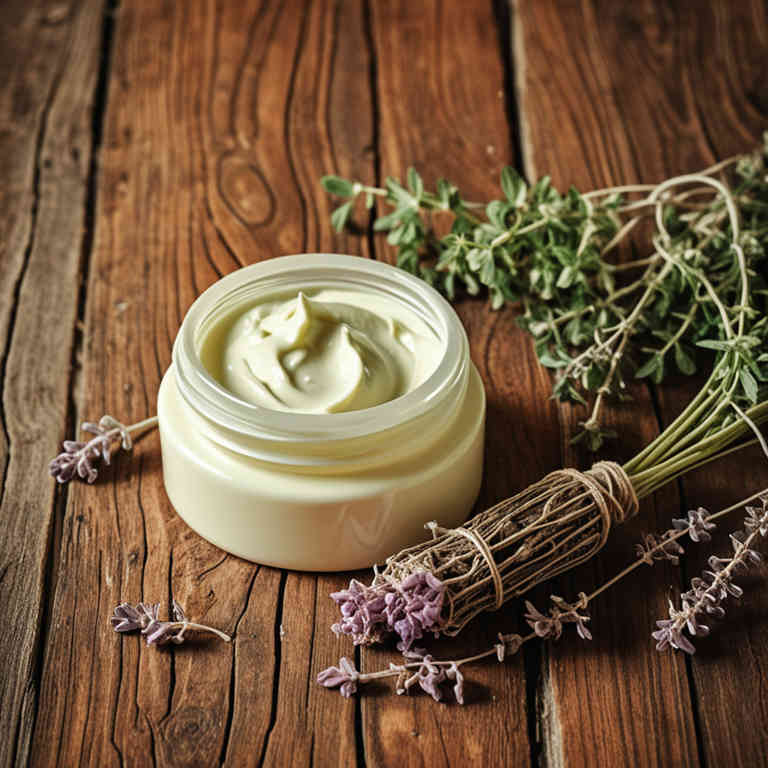Thymus vulgaris cream for medicinal use

Thymus vulgaris cream is a topical preparation made from the essential oil of thyme, which is derived from the plant Thymus vulgaris.
This cream is commonly used in herbalism for its antimicrobial, anti-inflammatory, and antiseptic properties. It is often applied to treat skin infections, wounds, and minor burns due to its ability to promote healing and reduce irritation. Thyme oil in the cream also helps alleviate symptoms of respiratory conditions when used externally.
In traditional herbal practices, it is valued for its soothing and protective effects on the skin.
Uses
Thymus vulgaris cream has been used to treat respiratory and skin conditions for centuries.
Historically, it was valued in ancient Egypt and Greece for its antiseptic and anti-inflammatory properties. Traditional uses included alleviating coughs, colds, and wounds due to its strong thyme oil content. In modern times, it is commonly used in topical formulations to address acne, eczema, and minor skin irritations.
Its continued popularity reflects both its historical efficacy and its validated medicinal benefits in contemporary skincare and therapeutic applications.
Benefits
Thymus vulgaris cream has health benefits such as promoting wound healing, reducing inflammation, and supporting immune function.
It contains thymol, a powerful antioxidant and antimicrobial compound that helps combat infections and soothe skin irritations. This cream is often used topically to treat minor burns, eczema, and fungal infections due to its soothing and protective properties. Its natural anti-inflammatory effects can also help alleviate symptoms of skin conditions like psoriasis and dermatitis.
Overall, Thymus vulgaris cream is a valuable herbal remedy for maintaining skin health and enhancing the body's natural defenses.
Constituents
Thymus vulgaris cream active constituents include thymol, carvacrol, and terpinene, which are known for their antimicrobial, anti-inflammatory, and antioxidant properties.
These compounds work synergistically to provide therapeutic benefits for various health conditions. Thymol is particularly effective in combating bacterial and fungal infections due to its ability to disrupt cell membranes. Carvacrol contributes to the cream's antiseptic and analgesic effects, making it useful for skin irritations and minor wounds.
Terpinene enhances the overall efficacy of the formulation by supporting immune function and reducing oxidative stress in the body.
Preparation
To make Thymus vulgaris cream, start by harvesting fresh thyme leaves and washing them thoroughly.
Next, blend the fresh thyme with a small amount of water to create a paste, then strain the mixture to remove any solids. After that, mix the strained thyme liquid with a base of coconut oil or another carrier oil, using a ratio of approximately 1 part thyme to 3 parts oil.
Finally, transfer the mixture to a clean container and store it in a cool, dark place for use as a topical remedy.
Side Effects
Thymus vulgaris cream may lead to skin irritation or allergic reactions in some individuals due to its active compounds.
It is commonly used for its antimicrobial and anti-inflammatory properties, which can help with skin conditions like eczema or fungal infections. However, prolonged use may cause dryness or sensitivity, especially in those with sensitive skin. It is important to perform a patch test before applying it extensively.
Side effects such as redness, itching, or burning should be monitored, and medical advice should be sought if they persist.